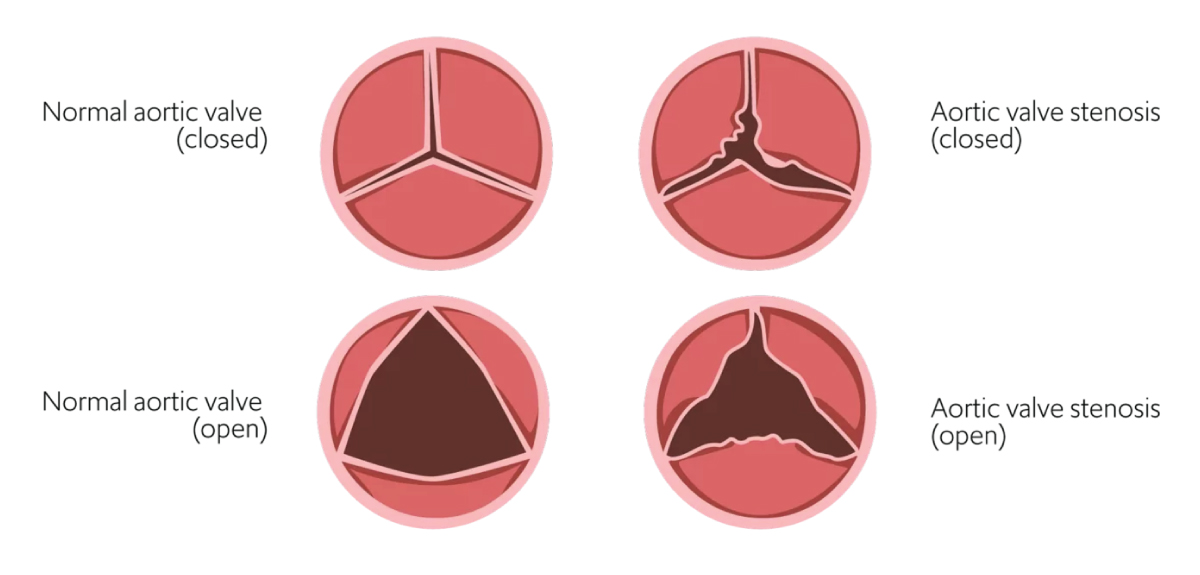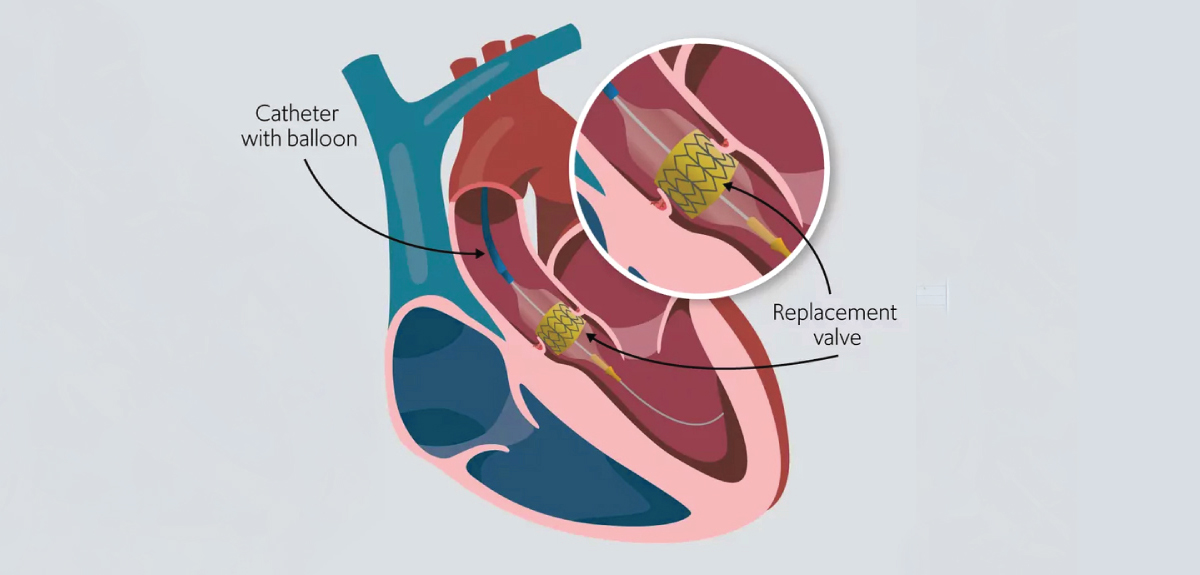TAVR
Innovative heart valve repair
In April 2014, Saint Agnes Medical Center's expert team of cardiothoracic surgeons and interventional cardiologists performed the Valley's first Transcatheter Aortic Valve Replacement, a nonsurgical treatment option for intermediate- and high-risk patients living with severe aortic stenosis. Since then, our heart team has given new hope and the promise of an improved quality of life to more patients than any other area hospital—and the numbers continue to grow.
What is a TAVR?
Transcatheter Aortic Valve Replacement (or, TAVR) is a minimally-invasive procedure that allows the heart valve to be replaced without the need for open chest surgery. Our specially-trained team of interventional cardiologists and cardiothoracic surgeons uses a balloon catheter, inserted through a small incision in the leg or under the clavicle, to place a new valve within the diseased aortic valve.
Benefits of TAVR
Patients who undergo TAVR have greater stamina, are able to be more physically active, and enjoy improved cardiovascular health. Patient also leave the hospital within 2-3 days after surgery and their recovery takes just a few weeks—opposed to the months of recovery associated with traditional heart surgery.
Who is a candidate for TAVR?
TAVR is available for all patients with symptomatic aortic stenosis, including those at low risk for complications from open heart surgery.
Understanding aortic stenosis

Aortic stenosis is a condition of the heart where the aortic valve in the heart narrows, limiting blood flow from the heart into the aorta and the rest of the body. This restriction can strain the heart and lead to serious complications if left untreated.
Signs and symptoms of aortic stenosis can include:
- Chest pain or tightness
- Shortness of breath, especially during physical activity
- Fatigue or feeling unusually tired
- Dizziness or fainting
- Heart palpitations
- Irregular heartbeat
- Swelling in the ankles, feet or abdomen
Frequently asked questions
Medicare covers TAVR when certain conditions are met. Your heart team will discuss those criteria with you.
TAVR has been commercially available in Europe since 2007 and in the United States since 2011. It was first performed at Saint Agnes in 2014.
How long the valve last varies from patient-to-patient. It has been tested to mimic 5 years of use without failure.
Most medical procedures have risks. The most serious risks include stroke, serious damage to the arteries, serious bleeding and even death. Ask your doctor to explain all risks to you.
The procedure usually takes 1-2 hours.
Because each patient is different, your heart team will decide if you should be fully asleep during the procedure.
Open heart surgery requires that your chest is opened, and your heart is stopped. Neither of those are needed for TAVR.
The average hospital stay is 2-3 days.
Your doctor will probably ask you to take blood thinners after your TAVR procedure. This might include aspirin or medicines like Plavix. These will help to thin your blood while your body gets used to your new heart valve, and will help reduce the risk of having a stroke.
Your doctor will tell you what you can and cannot do now that you have a new heart valve.

